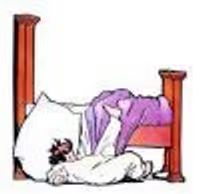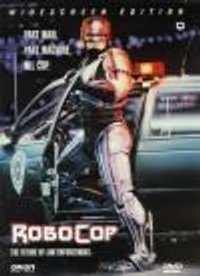Composers and shows and their contributions
#25re: Composers and shows and their contributions
Posted: 3/13/06 at 11:25pm
TEH,
Funny you mention that, I am reading an academic article right now, and one big point it is trying to make is that Sondheim's librettists never get enough credit. Sondheim himself doesn't even like when people refer to a show as a "Sondheim" show and try to find themes that run through them all, because he feels that if that happens then he is not doing his job and serving the story, and hence the librettists.
Akiva
TheEnchantedHunter
Broadway Legend Joined: 6/27/05
#26re: Composers and shows and their contributions
Posted: 3/13/06 at 11:28pm
"No, Sondheim wasn't the first to write songs for characters, but he was the first to do it so specifically."
Tell that to Harold Hill (Trouble) and Adelaide (Adelaide's Lament) and Tony Esposito (Mama, Mama) and Jud Fry (Lonely Room) and King Mongkut (A Puzzlement) and Henry Higgins (An Ordinary Man) and.....the list goes on.
Vivian Darkbloom
Ramsdale, New England
#27re: Composers and shows and their contributions
Posted: 3/13/06 at 11:34pm
I believe Sondheim wrote four musicals for Oscar's course, but I am often bad about detail. They were All That Glitters, Mary Poppins, Climb High, and something else?
There's a difference between writing a reprise and writing music thematically. Just because you hear a line of music again doesn't mean it's a reprise. A reprise is when you hear a song in a show again and there's almost nothing different about it, if anything at all. When Sondheim says he's against them it's because he doesn't understand why a character would sing unless they had some cause to, or why they would ever sing the same thing again since they have clearly gone through a lot of growth since the first time they sang that song.
I think this is kind of unfair of him because it's a very general statement and he has used reprises. A Little Night Music reprises Send in the Clowns at the very end. It's justified, so I agree that in places where it is justified, go for it. But it's a little shady to repeat a song for the express purpose of letting the audience hear it again.
FoscasBohemianDream, your statement was a little funny because Oscar Hammerstein wrote the lyrics and book of Showboat, and Rodgers music for Pal Joey.
TheEnchantedHunter, thank you. Sondheim is less the maverick than people accuse him of being. Supremely romantic and brooding, right down to the every note of his music (what unromantic composer could write any of Sweeney Todd?). He just doesn't deal in kitsch, like so many others. There is the difference.
joey
#28re: Composers and shows and their contributions
Posted: 3/13/06 at 11:53pm
A few contributions which have not been mentioned...
Look into The Princess musicals, which were an assortment of small musicals written by Jerome Kern with (mostly) PG Wodehouse and Guy Bolton during the 19teens. In an era dominated by big productions emphasizing glitz and fantasy, the Princess musicals (named for The Princess Theatre) delt with realistic plots, small casts, and songs that made sense for the characters and situations.
Of Thee I Sing was an enormously influential musical. When talking movies came around in the late 20's, the movie musicals took a great deal of business away from live stage shows. Broadway needed to do something different. Of Thee I Sing was a contemporary satire of American politics. This sort of thing was just not done before. It won the Pulitzer Prize for drama, and the musical theatre of the 1930's was dominated by sharp, edgy satires.
Also, take a look into the career of George Ballanchine, the first person to be credited as a choreographer on Broadway. (They used to call them "dance directors") In On Your Toes he created 2 ballets which were woven into the plot of the show, something never done before.
jam_man
Broadway Legend Joined: 4/25/05
#29re: Composers and shows and their contributions
Posted: 3/14/06 at 12:52am
""No, Sondheim wasn't the first to write songs for characters, but he was the first to do it so specifically."
Tell that to Harold Hill (Trouble) and Adelaide (Adelaide's Lament) and Tony Esposito (Mama, Mama) and Jud Fry (Lonely Room) and King Mongkut (A Puzzlement) and Henry Higgins (An Ordinary Man) and.....the list goes on. "
Yes, all of those songs are very well written character songs that are quite specific. However, most Sondheim is even more specific. Maybe using the phrase "...the first to do it so specifically" wasn't the best choice, but what I was trying to say was that he wasn't the fisrt to write character specific numbers, he is just, in my opinion as well as many others, the best at it. Not to mention he works much harder than most everyone else, so as to make it so specific.
"The man who wishes he had written Phantom of the Opera!" - SueleenGay
GO CARDINALS!!!
#30re: Composers and shows and their contributions
Posted: 3/14/06 at 1:00am
heh...I'm thinking of including Marc Shaiman's and Michael John Lachiusa's debate in my presentation. I think it is a very good tangible example of the debate that is going on in the musical theatre community.
akiva
#31re: Composers and shows and their contributions
Posted: 3/14/06 at 6:52am
Unfortunately, I don't think any of the three-named composers will do much to bring the art form into the next century. As much as I repsect LaChuisa, Brown and Guettel (technically only two names, but you know what I mean), I don't they really could ever swim the waters of commercial theatre with any success. Or at least they haven't to date.
The Marc Shaimans of the world (along with the authors of AVE Q, URINETOWN and the lot) are wonderfully talented pastiche artists. But I doubt their works will last through time, either.
Aside from the old guard (Schwartz, Sondheim, Schonberg), the only new-ish writers out there at the moment who writes original yet accessible material are William Finn and the team of Ahrens and Flaherty. I don't know that A&F (not to be confused with the catalog) have really influenced a lot of writers, but I think a case could be made for Finn. He inspired a lot of idiosyncratic, quirky souls to put their works out there. Ya gotta love that!
TT
TheEnchantedHunter
Broadway Legend Joined: 6/27/05
#32re: Composers and shows and their contributions
Posted: 3/14/06 at 7:10pm
">>>I'm thinking of including Marc Shaiman's and Michael John Lachiusa's debate in my presentation. I think it is a very good tangible example of the debate that is going on in the musical theatre community.<<<"
Akiva, I wrote this in earlier thread: 'Both LaChiusa and Shaiman in their polarized ways are representative of what is wrong with contemporary musical theatre. Surely there must be a happy medium between esoteric, melodically bereft scores that please no one and generic, hook-driven pop scores that are indistinguishable from any number of formulaic songs. It is exactly this middlebrow (in the best sense of the word)sensibility that once informed the core group of classic American musicals and which has virtually disappeared from our stages.'
Vivian Darkbloom
Ramsdale, New England
Updated On: 3/14/06 at 07:10 PM
Videos




